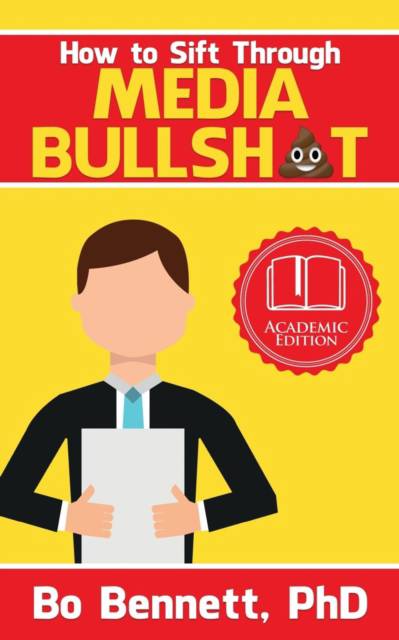
- Retrait gratuit dans votre magasin Club
- 7.000.000 titres dans notre catalogue
- Payer en toute sécurité
- Toujours un magasin près de chez vous
- Retrait gratuit dans votre magasin Club
- 7.000.0000 titres dans notre catalogue
- Payer en toute sécurité
- Toujours un magasin près de chez vous
Description
A fact is a fact, right? Unfortunately, it's not that simple. A "fact" is primarily defined as "a thing that is indisputably the case." The problem with that definition is that virtually anything can be disputed, and most things are. But the legal language of "beyond a reasonable doubt" applies to this definition. Many times, especially on the Internet, facts that are disputed are done so WITHOUT reasonable doubt. For example, there is an entire organization devoted to disputing the fact that the earth is NOT flat.
A secondary definition of "fact" is "a piece of information used as evidence or as part of a report or news article." These "facts" are still "things that are indisputably the case," or are supposed to be, but used in this context; facts are used to support a theory, conclusion, or opinion. For example, one might argue that the government is out to enslave its citizens. They may offer several facts to support that argument including the facts that the government can imprison people, the government has imprisoned people, and the government has no plans to stop imprisoning people. No reasonable person would dispute those facts, but that doesn't mean that the facts adequately support the argument or claim.
Very little information we consume is straight fact. We consume opinion, commentary, satire, gossip, conspiracy theories, marketing copy, and other forms of non-facts. Even when we are given facts, it can be done in such way to mislead, deceive, and manipulate where we are led to develop a false sense of confidence in our conclusions based on these facts.
Oh, by the way, "alternative facts," are falsehoods.
In this book, we will go over important concepts that will help you to become a more responsible consumer of information including:
- Important terms such as fake news site, click bait, echo chamber, and more.
- How our cognitive biases get in the way when it comes to accepting reality.
- How to quickly evaluate any information source.
- How to ask the right questions when deciding how much weight to give information.
- How to spot when you are being misled, deceived, manipulated, or outright lied to.
We may not have a legal obligation when it comes to being a responsible consumer of information. But one can easily argue that we do have a moral obligation. A society is only as good as its citizens, and our intellectual contributions or lack thereof have far-reaching effects. While this short course is unlikely to make you a master of parsing information, it's a heck of a good start!
Spécifications
Parties prenantes
- Auteur(s) :
- Editeur:
Contenu
- Nombre de pages :
- 36
- Langue:
- Anglais
Caractéristiques
- EAN:
- 9781456631925
- Date de parution :
- 23-10-18
- Format:
- Livre broché
- Format numérique:
- Trade paperback (VS)
- Dimensions :
- 127 mm x 203 mm
- Poids :
- 49 g

Les avis
Nous publions uniquement les avis qui respectent les conditions requises. Consultez nos conditions pour les avis.






